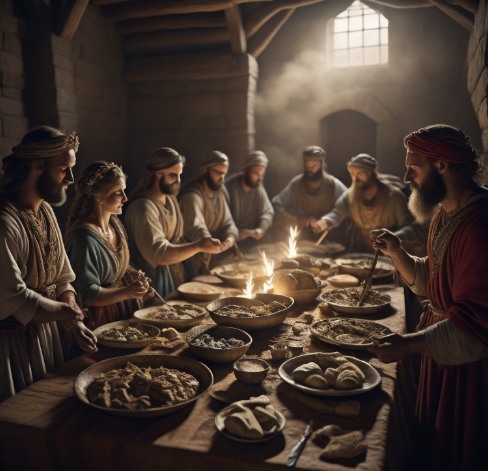
Dear Church,
This matter has weighed on my mind for a while, but a local church’s actions have compelled me to break my silence.
My aim is not to incite controversy but to shed light on a matter of truth. Recently, I learned of a situation where a local church in Enid, Ok denied membership to an elderly individual due to the absence of what they defined as a Biblically recognized marriage. However, there are various reasons why someone might choose not to undergo a legal marriage or be wed by a Pastor. It’s essential to clarify that a secret ceremony performed by a Pastor in your office does not constitute a valid marriage. In this letter, I will delve into a piece of history to address current church trends and the issue of questionable authority within the church.
In the Bible, the closest reference to a wedding is the one featuring Jesus attending a wedding feast at a home. Interestingly, there was no priest performing a ritual, and Jesus attended as a guest, not as the officiant. In this instance, it was a joyful celebration marking the union of two individuals, much like a daughter being given away to a husband. Jesus did not disapprove of this union, and neither should the Church.
The only “ceremony” found in any religious text is in Tobit 7:12-14, where a father places his daughter’s hand in the hand of her husband and writes a contract. The reason there are no marriage ceremonies in the Bible is that marriage did not involve such rituals. In the Bible, marriage consisted of a man and a woman, with the consent of the woman’s father or guardian (Genesis 24:49-51, Genesis 29:15-20, I Samuel 18:20-29, Exodus 2:16-22), living together and attempting to have children. There were no vows, priests, rituals, prayers, pronouncements, licenses, or registrations involved. This differs greatly from our modern definition and enactment of marriage.
Today, for a marriage to be considered valid, it must be legal, recognized by state laws, and registered accordingly. Additionally, many Christians believe a marriage is not a “Christian marriage” unless a credentialed minister officiates it, preferably in the presence of the congregation. However, these practices are relatively recent developments. Throughout most of human history, marriage was simply an agreement recognized or arranged by immediate families for a man and a woman to live together. The concept of marriage as a legal institution and religious ceremony arose during the Reformation.
Today, it can be challenging to take the state’s stance on marriage seriously from a Christian standpoint, especially when they permit unions between individuals with unconventional preferences based on personal happiness. This can lead one to question the relevance of government regulations regarding marriage.
During the Middle Ages, churches began keeping records of marriages, but Martin Luther regarded ceremonial marriage as a “worldly matter” and delegated the recording of marriages to the state. John Calvin was the first to believe that a valid marriage required both state recording and church officiation. It was not until 1563 (That’s more than 1,500 years following the time of Christ.) that the Catholic Church required marriages to be officiated by a priest, and the Anglican Church followed suit in 1753. So, for the past five hundred years, the European tradition has seen three types of marriage: legal, religious, and social. Social marriage, as described in the Bible, is the most in line with biblical principles.
If the church were to once again recognize social marriage today, it would mean that couples living together, especially those raising children, could be treated as married even without legal or religious formalities. Historically, society and the church often regarded such couples as married. Given the increasing number of couples choosing to cohabit and raise children without formal ceremonies or legal licenses, it might be advantageous for the church to adopt a more historical stance toward them. Failing to do so may alienate these couples, depriving them of the church’s guidance and support.
This does not imply that the church should cease advocating for religious ceremonies and legalized marriages. These innovations serve important purposes. A public ceremony with vows and prayers clarifies the couple’s commitment, connects their love to the sacred story of God’s love, and involves the community and congregation in supporting the marriage. Legally recognized marriages grant couples various rights, provide stability to the relationship, and offer protection to spouses and children in case of divorce.
I believe the church can best support marriage and family by recognizing that couples intending to share their lives represent a form of marriage. The reasons behind the increasing number of couples choosing not to legally marry in our society are unclear. Nonetheless, we do them a disservice by rejecting them. Instead, let us welcome them, treat them as if they were married, and advocate for the benefits of public religious rituals and legal recognition.
Grace to you,
